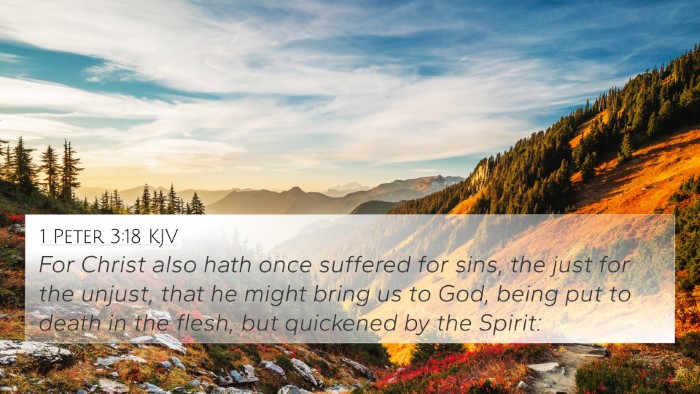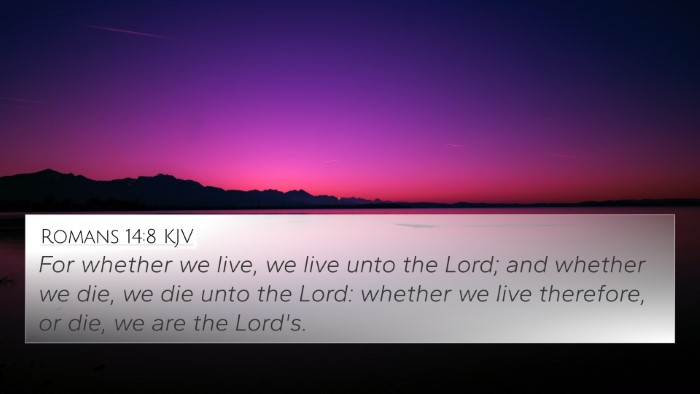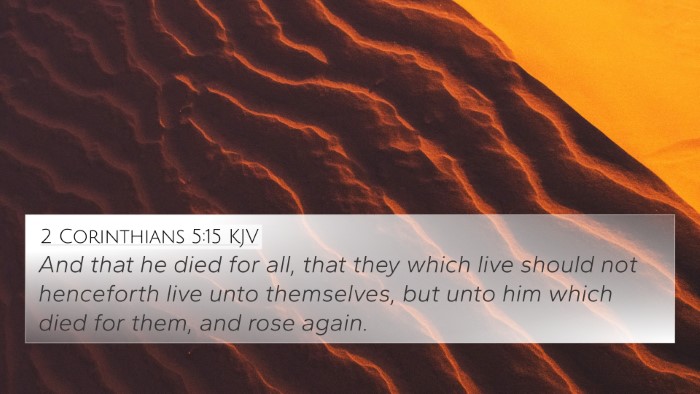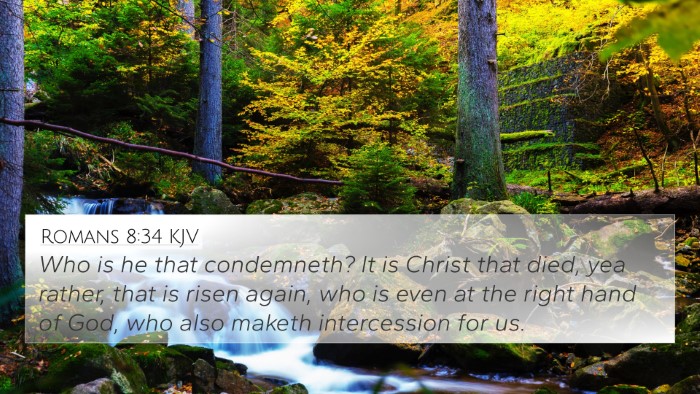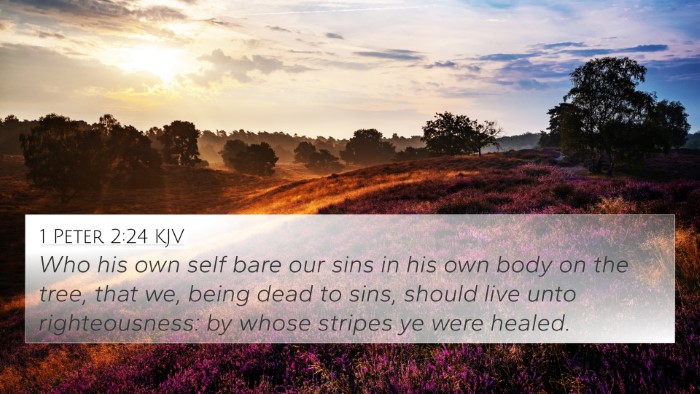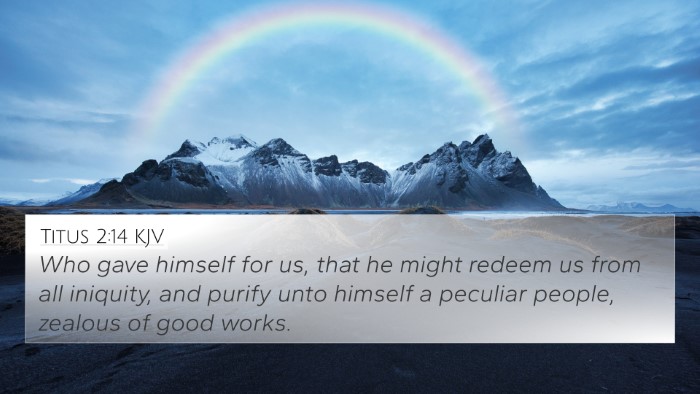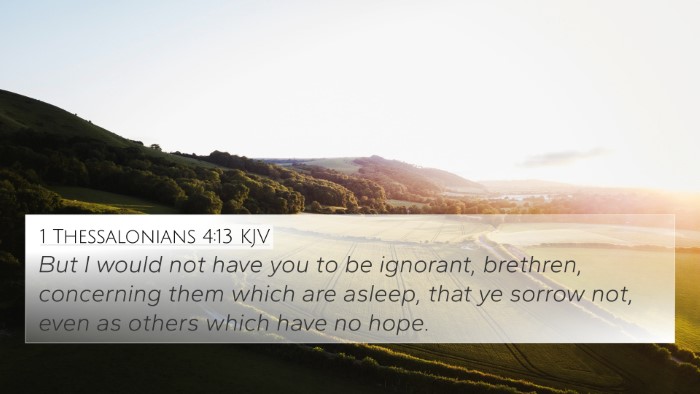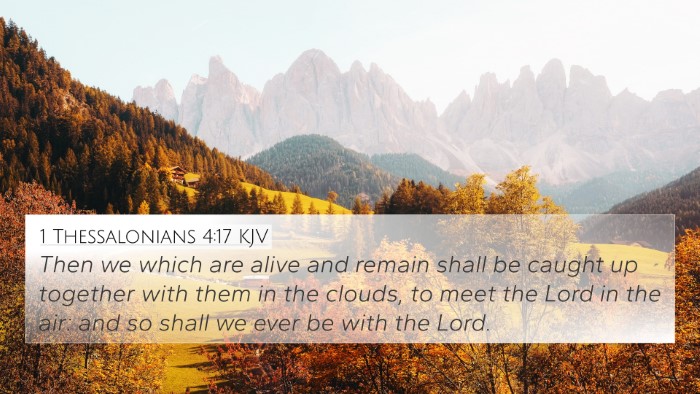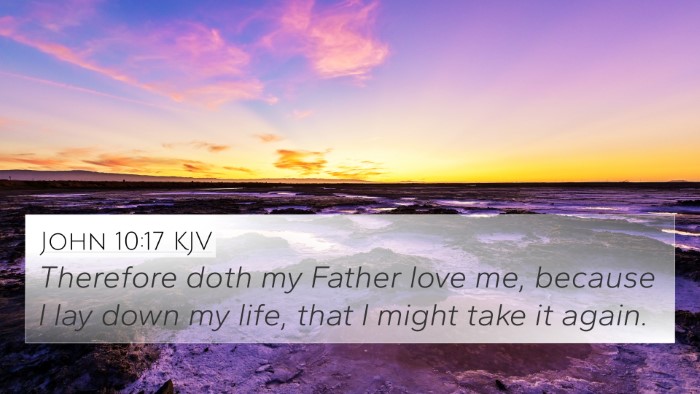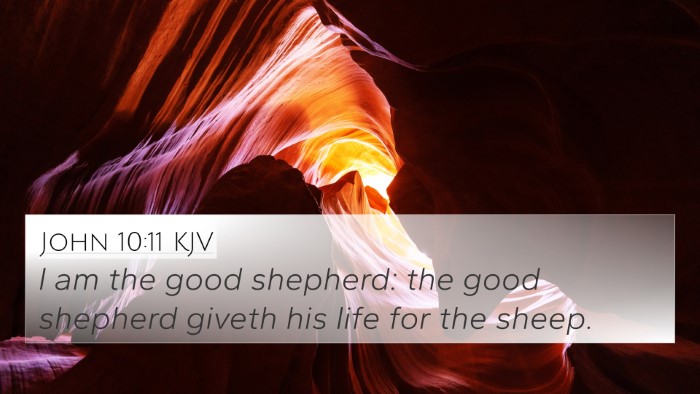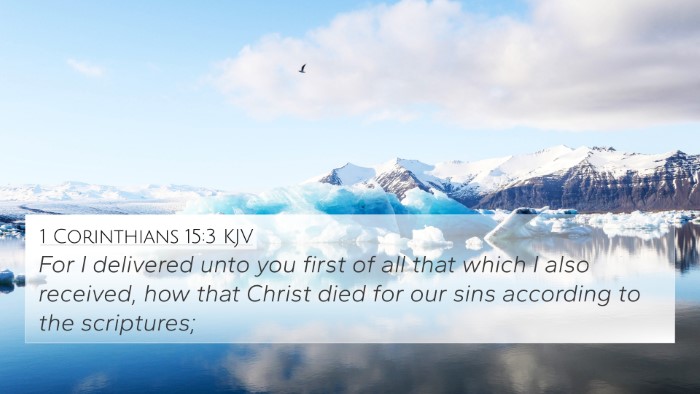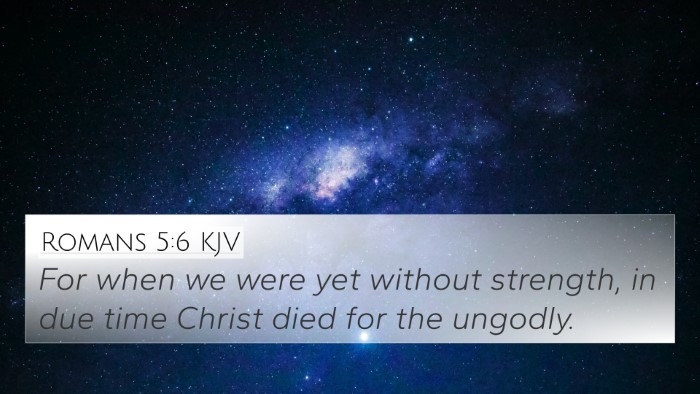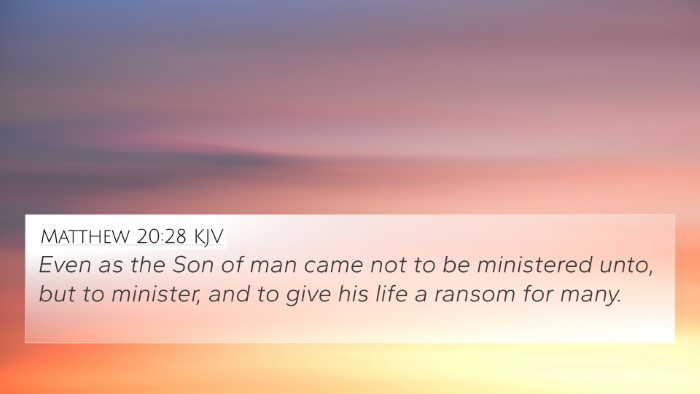Understanding 1 Thessalonians 5:10
Verse Reference: 1 Thessalonians 5:10
Text: "Who died for us, that whether we wake or sleep, we should live together with him."
Summary of Meaning
This verse highlights the sacrificial love of Christ who died for humanity, emphasizing not only His death but the purpose behind it. The phrase "whether we wake or sleep" underscores the assurance of eternal life for believers, irrespective of their physical state at the time of Christ's return. The promise is that they will "live together with him," pointing to the hope of resurrection and eternal communion with Christ.
Insights from Public Domain Commentaries
-
Matthew Henry:
Henry reflects on the unconditional love demonstrated by Christ's sacrifice. He indicates that whether believers are alive ("wake") or dead ("sleep"), they are ensured that eternal life with Christ is a reality. Believers are united in their hope and future with Christ, showcasing the divinity of His purpose.
-
Albert Barnes:
Barnes emphasizes the significance of Christ's death for all believers. His commentary underscores that the state of being awake or asleep does not hinder one's relationship with Christ. Whether alive or deceased, all will share in the promise of a fulfilled existence with the Lord in eternity.
-
Adam Clarke:
Clarke elaborates on the theme of resurrection associated with this verse, affirming the belief that all believers will live with Christ eternally. He notes that the term "sleep" refers to the death of believers—highlighting the comforting notion of sleep as a temporary state, reinforcing hope in resurrection.
Bible Cross-References
This verse connects to several other passages that reinforce its themes:
- Romans 14:8: "For if we live, we live to the Lord; and if we die, we die to the Lord. Therefore, whether we live or die, we are the Lord's."
- John 11:25-26: "Jesus said to her, 'I am the resurrection and the life. He who believes in Me, though he may die, he shall live. And whoever lives and believes in Me shall never die.'"
- 1 Corinthians 15:51-52: "Behold, I tell you a mystery: We shall not all sleep, but we shall all be changed—in a moment, in the twinkling of an eye, at the last trumpet..."
- Philippians 1:21: "For to me, to live is Christ, and to die is gain."
- 2 Corinthians 5:1: "For we know that if the tent that is our earthly home is destroyed, we have a building from God, a house not made with hands, eternal in the heavens."
- Revelation 21:4: "He will wipe every tear from their eyes, and there will be no more death or mourning or crying or pain, for the old order of things has passed away."
- John 14:3: "And if I go and prepare a place for you, I will come again and will take you to myself, that where I am you may be also."
- Romans 8:38-39: "For I am convinced that neither death nor life, neither angels nor demons, neither the present nor the future, nor any powers, neither height nor depth, nor anything else in all creation, will be able to separate us from the love of God that is in Christ Jesus our Lord."
- 1 Peter 5:10: "And after you have suffered a little while, the God of all grace, who has called you to his eternal glory in Christ, will himself restore, confirm, strengthen, and establish you."
Thematic Connections and Analysis
This verse effectively illustrates the theme of hope that runs throughout the New Testament, particularly in Pauline epistles. The assurance of living together with Christ embodies fundamental New Testament teachings about salvation, resurrection, and life after death.
The connections between these scriptures reveal a common narrative of God's faithfulness and the promise of eternal life. By examining these cross-references, we gain a deeper understanding of how the Biblical texts converse with one another, enriching our study and ensuring a comprehensive grasp of Christian doctrine.
Conclusion
1 Thessalonians 5:10 serves as a powerful reminder of the hope and assurance believers have in Christ. The combination of insights from various commentaries reinforces the significance of this verse, while the cross-references guide us through related themes of eternal life and divine love. Engaging with these connections opens up a deeper appreciation of the Scriptures and highlights the importance of inter-Biblical dialogue and thematic connections within the Word of God.



